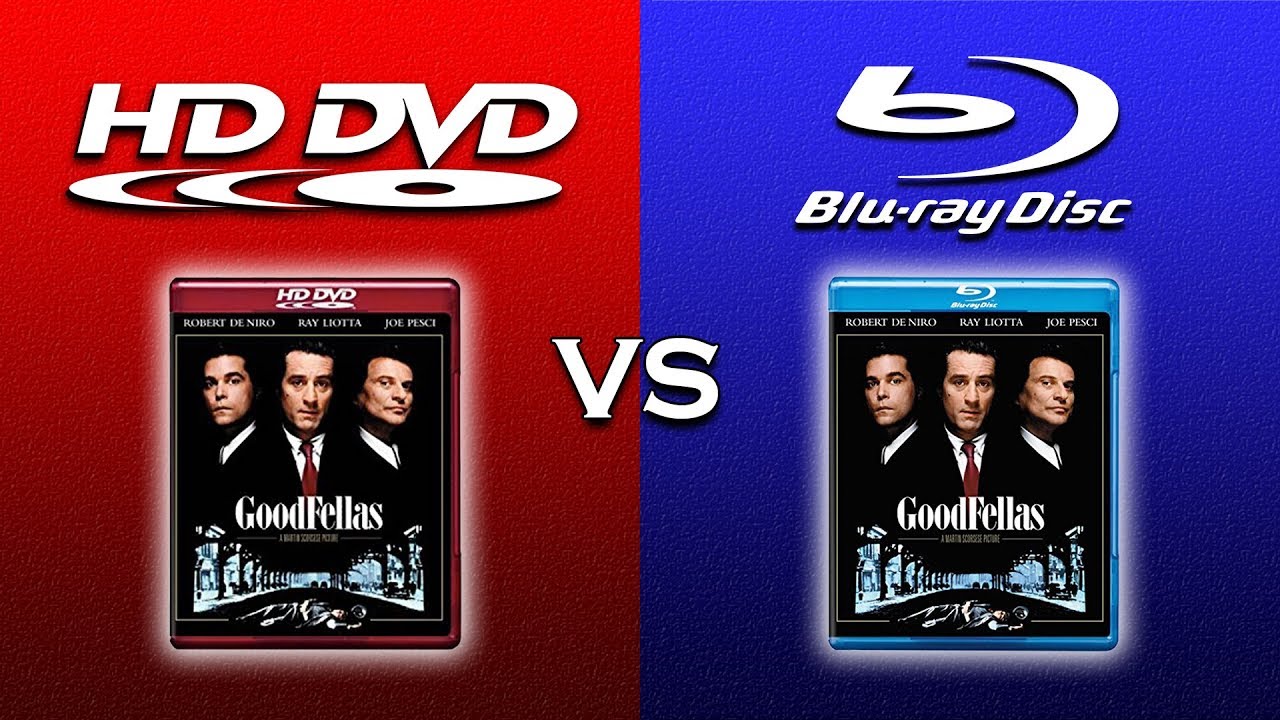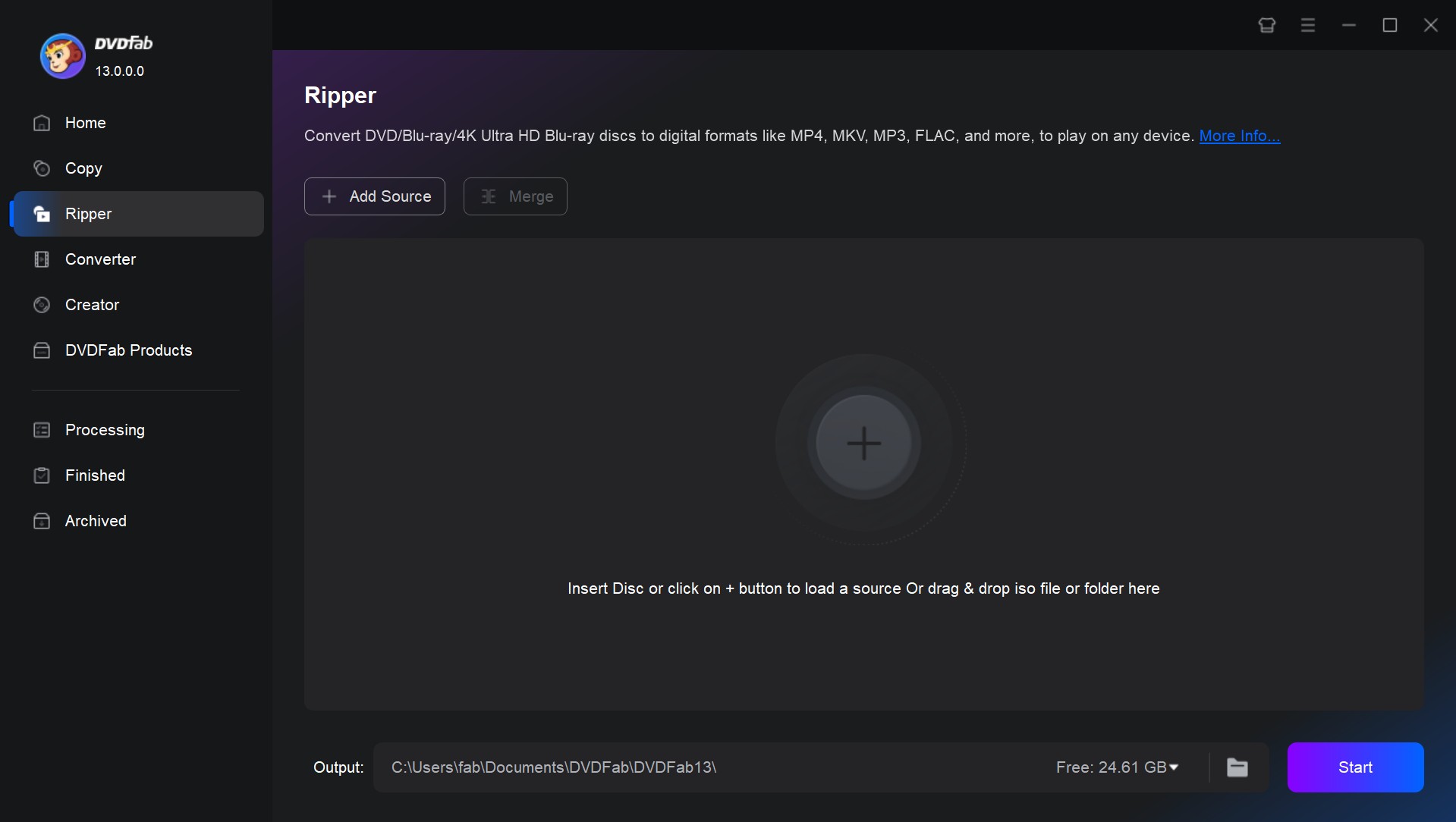HD DVD vs Blu-ray Comparison: Who Wins the Format War in 2025
Summary: The need for an HD DVD vs Blu-ray comparison really came down to a battle for the next-gen optical disc format in the mid-2000s. Both offer high-definition video but differ in various technical aspects. Explore the comprehensive and comparative details of Blu-ray vs HD DVD and the best paid and free ways to digitize Blu-rays for seamless playback across devices.
The battle between HD DVD and Blu-ray marked a defining moment in home entertainment, as both formats aimed to deliver high-definition video. HD DVD, backed by Toshiba, offered a competitive alternative to Sony's Blu-ray, quickly becoming the industry leader. In this HD DVD vs Blu-ray comparison, we'll explore the key differences between the two to end the format war. We will also understand what is HD DVD and Blu-ray to highlight clearly the winner of the Blu-ray vs HD DVD war. Let's dive in and discover the competitive differences between both formats and find the best software to rip Blu-rays.

HD DVD vs Blu-ray Comparison: Detailed Analysis
The battle between HD DVDs and Blu-rays was a significant aspect of the early 2000s home entertainment landscape. Although Blu-ray ultimately emerged victorious, the competition between these two high-definition disc formats was fierce and included differences in technology, cost, compatibility, and marketing strategies.
Technical Differences: Blu-ray discs have a higher storage capacity due to their blue-violet laser, which has a shorter wavelength (405nm) than the red laser used by HD DVDs. This allows more data to be packed into the same physical space.
Winner: Blu-ray
Compatibility: Blu-ray players were generally backward compatible with DVDs. Their broader support base for multiple formats made them a more versatile option for users transitioning from standard-definition content.
Winner: Blu-ray
Production Costs: Blu-ray technology was more expensive to produce, primarily because of its blue-violet laser's complex nature and advanced coating and data layer technology.
Winner: HD DVD
Marketing and Industry Support: Blu-ray had widespread industry support from major Hollywood studios and was marketed as the more futuristic, cutting-edge option, with superior storage and high-definition video quality.
Winner: Blu-ray
Here's a brief overview to better understand Blu-ray vs HD DVD.
| Key Differences | HD DVD | Blu-ray |
|---|---|---|
| Developer | DVD Forum Toshiba | Blu-ray Disc Association |
| Storage Capacity | Single Layer: 15 GB Double Layer: 30 GB |
Single Layer: 25 GB Double Layer: 50 GB BDXL: 100/128/200 GB |
| Max. Video Resolution | 1920×1080 24/25/30p or 50/60i HDTV | 1080p High Definition TV, 2160p, 4k Ultra HD |
| Max. Bitrate (Raw Data) | 36.55 Mbit/s | 53.95 Mbit/s |
| Encoding | VC-1, H.264, and MPEG-2 | MPEG-2, MPEG-4 AVC (H.264), and VC-1 HEVC (H.265) |
| Content Protection System | AACS-128bit | AACS-128bit / BD+ |
| Region Code | Region free | 3 Regions (Optional), Region-free Ultra HD |
Blu-ray vs HD DVD: Which One is Better
HD DVDs are a successor to DVDs and an optical storage medium that holds a high amount of content. While standard DVDs can have a maximum of 8.5 GB of data, HD DVDs were introduced to store up to 30 GB of data.
HD DVD
Pros:
- High storage capacity of up to 30 GB
- Cheaper products due to low manufacturing costs
- Twin disc support to imprint DVD and HD DVD on the same disc
- Backward compatible with DVDs and CDs
- Support from hard and software giants such as Microsoft, Intel, Paramount, LG, Dreamworks, and more
Cons:
- Most DVD players are limited to 1080i resolution
- HD DVD players can not play Blu-ray discs
- Lacks gaming support from tech giants
Blu-rays are another storage format mainly used for HD videos. As a successor to CDs and DVDs, they use advanced blue violet technology for a shorter wavelength to hold more data (up to 50 GB).
Blu-ray
Pros:
- High storage capacity up to 200 GB
- Output to 1080p with a resolution of 1920x1080
- Better product quality with added security
- Extensive industry support from both hardware and content providers
- Compatible backward with DVDs and CDs
- Supports Sony PlayStation 3 as standard
Cons:
- A bit more expensive than an HD DVD
- Requires high-end, modern displays to access HD content
In a nutshell, Blu-ray's larger storage capacity was a key advantage as high-definition movies, bonus features, and high-fidelity audio required more space. The backing of major studios, electronics manufacturers, and gaming platforms like the PlayStation 3 helped Blu-ray secure widespread adoption. As the production of HD DVDs ceased in 2008, let's see how you can digitize your Blu-ray discs with professional and free tools.
2 Best Ways to Convert Blu-ray to Digital Media
1. Digitize Blu-ray Using the Best Professional Tool

DVDFab Blu-ray Ripper is the best professional converter to convert 2D/3D Blu-ray and other ISO files/folders to 1000+ lossless audio or video formats for seamless playback on different devices. Its state-of-the-art GPU acceleration technology can adjust video color and convert multiple Blu-ray discs to digital files at 50x faster speed.
Key Features:
- Converts old and latest copy-protected Blu-ray discs
- Supports more than 1000 media formats and over 245 preset devices
- Modify the output parameters to gain complete control over the converted video
- Inbuilt video editor to trim, copy, cut, add watermark/subtitles, adjust brightness/contrast, and more
How to Convert Blu-ray to Digital Formats with DVDFab DVD Ripper
Step 1: Open DVDFab 13 on a PC or Mac and pick the Ripper module. Load your Blu-ray disc into the drive and navigate it using the Add button.

Step 2: Opt for your desired profile from Choose Other Profile and pick the preferred titles, audio track(s), and subtitle(s) to preserve.

Utilize Advanced Settings and Video Editor to tailor the output video.

Step 3: Set the video's output location on your hard disc drive or mobile phone. Tap Start to begin the Blu-ray ripping and see the comprehensive processing tasks with progress information.
2. Convert Blu-ray Disc to Video with a Free Alternative

While HandBrake is a free video transcoder, it also helps convert DVDs and Blu-rays. With a fast conversion speed, HandBrake makes it easy to rip or convert homemade and non-encrypted Blu-ray content to other widely compatible formats such as MP4, MKV, and WebM. If you have any shows/movies ripped with another tool, HandBrake can help you compress or modify the video formats without hassle.
Key Features:
- Rips DVDs and Blu-rays on Windows, Mac, and Linux computers
- Batch scans and queues multiple discs
- Rip Blu-ray discs in three popular formats: MP4, MKV, and WebM
- Customization options are available to adjust the video filters, subtitles, dimensions, chapters, etc
How to Convert Blu-ray to Video Formats with HandBrake
Step 1: Install and open the newest version of HandBrake on your system.
Step 2: Enter the primary interface and load your non copy-protected Blu-ray disc in the external drive.

Step 3: Wait until the disc content loads, and once done, HandBrake will automatically scan it.
Step 4: Select all the movie titles you want to convert to MKV, MP4, or WebM. Then, click Output Settings to select the preferred output format.

Note: Select the longest title to rip the main movie.
Step 5: Pick the storage path from Browse to save your file and tap Start Encode to begin ripping.
FAQs
1. What's the main difference between HD DVD and Blu-ray?
The main difference between HD DVD and Blu-ray is their storage capacity and pricing. For example, Blu-ray has higher storage and advanced piracy protection, making it more expensive. On the contrary, DVDs can hold only 30 GBs of data and are less costly than Blu-rays.
2. HD DVD or Blu-ray, which has better picture quality?
Compared to HD DVDs, Blu-rays offer better picture quality. Blu-rays support higher bitrates with better compression, making clearer and sharper images. They display more stunning visuals with vibrant colors and superior sound quality. While HD DVDs were restricted to 1080p, Blu-rays support 4K resolution.
Conclusion
The Blu-ray vs HD DVD war is long over, with Blu-ray emerging as the clear victor. The comparison ultimately favored Blu-ray due to its higher storage capacity, stronger industry support, and widespread consumer adoption. Blu-ray's dominance in the physical media market continues, while Toshiba announced the cease of the production of HD DVD, ultimately fading it into obscurity. Blu-ray's enduring presence cements its place as the winner in the format battle.
